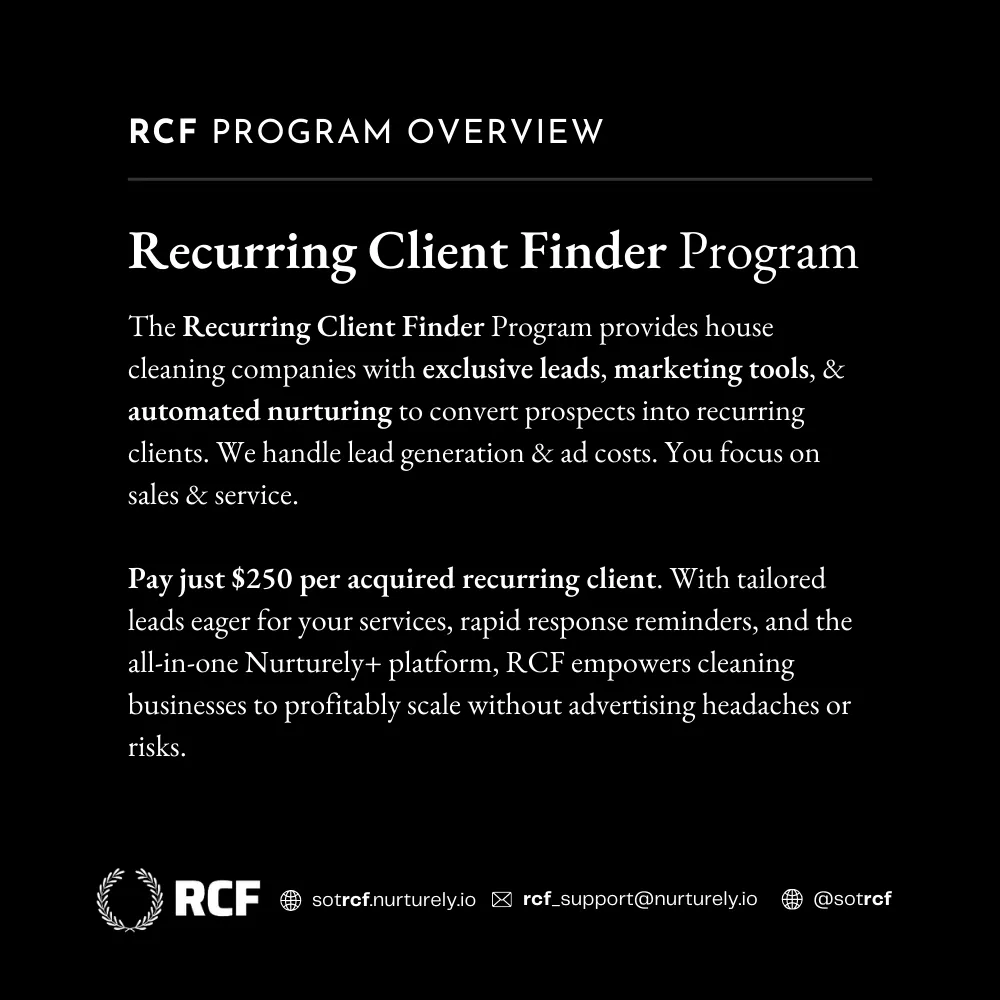
Scheduling Theology
Scheduling Theology
Tips, Tricks, & Policies For A House Cleaning Company
Running a residential (house) cleaning business involves more than just ensuring that homes are spotless.
One of the most challenging aspects is managing a dynamic schedule with multiple clients, locations, and cleaning staff.
Today, we’ll dig deep into the theology behind scheduling, explore strategies for assigning cleaners to clients, and highlight critical considerations to keep in mind.

Theology of Scheduling
Effective scheduling is not merely about filling slots with available cleaners.
It’s a strategic process that considers various factors to optimize efficiency and satisfaction.
Here are the core principles of scheduling:
Visual Reminders: Keeping a visual track of potential and confirmed jobs helps in planning and avoiding last-minute rushes.
Rescheduling appointments to future dates when confirmations are pending allows you to maintain a clear view of your workload.
Buffer Times: Incorporating buffer times between jobs is essential, especially when dealing with new clients or locations.
This cushion helps manage unexpected delays and ensures that cleaners are not rushed, which can affect the quality of their work.
Efficiency and Proximity: Assigning jobs based on the geographical proximity of cleaners minimizes travel time, reduces fuel costs, and enhances productivity.
Efficient route planning is crucial in making the most out of your team’s working hours.
Consistency in Service: For recurring clients, maintaining the same cleaner builds familiarity and trust.
Clients appreciate seeing familiar faces, which leads to higher satisfaction and fewer complaints.
Who Goes Where: The Strategy Behind Assignments
Assigning the right cleaner to the right job involves a deep understanding of both the cleaners' capabilities and the clients’ preferences. Here’s how you can strategically decide who goes where:
Proximity-Based Assignments: Cleaners are assigned to jobs closer to their previous or next appointments to minimize downtime.
For instance, if Maran is already in Bellbrook, assigning her a job in nearby Xenia is more efficient than sending someone from a distant location.
Experience and Familiarity: Experienced cleaners are paired with new clients to ensure high-quality service and handle any unique requirements the new client might have. New cleaners or those in training are paired with experienced ones or assigned to simpler tasks.
Client Preferences: Some clients have strong preferences for specific cleaners. Understanding these preferences and assigning cleaners accordingly ensures client satisfaction.
For example, if a client prefers Jessica, she should be assigned to their job whenever possible, even if it means adjusting other schedules.
Why They Go There: Rationalizing Cleaner Assignments
Understanding why specific cleaners are assigned to certain jobs is crucial for optimizing operations:
Efficiency: Jessica is assigned jobs closer to her base location to reduce long travel times. This approach ensures she can handle more jobs within her shift.
Availability: Cleaners with open schedules are slotted into the most urgent or logistically challenging tasks. This ensures no gaps in service and makes the best use of available (wo)manpower.
Client Flexibility: Clients who are less particular about who comes, provide flexibility in scheduling.
Things to Look Out For When Scheduling
Effective scheduling requires anticipating potential issues and proactively addressing them.
Key considerations:
Overlapping Appointments: Avoid overbooking by carefully cross-checking schedules. Overlaps not only disrupt the day’s flow but also risk disappointing clients if appointments have to be rescheduled last minute.
Travel Time: Always consider travel time between appointments. Scheduling jobs geographically closer to each other prevents delays and ensures cleaners are not stressed or hurried.
Deep Cleans: Schedule deep cleans during less busy periods. Deep cleans can disrupt regular schedules due to their time-consuming nature.
Preferably, avoid booking them during peak hours unless absolutely necessary.
We typically like to have our new clients or one-time appointments on Saturdays and we reserve that day specifically for these appointments.
Consider charging more for the initial deep cleaning so that you can pay your cleaners overtime.
New Clients: Allocate more time for new clients. Initial visits often take longer as cleaners familiarize themselves with the property and the client’s specific requirements.
Recurring Jobs: Keep recurring jobs at consistent times. Consistency helps in building a routine, ensuring that the same cleaner attends to the client, which in turn maintains service quality.
Client Communication: Ensure timely communication with clients regarding any changes in their schedule. Clear and proactive communication builds trust and prevents misunderstandings.
Personnel Availability: Track cleaner availability and training status. Ensure that trainees are paired with experienced staff or assigned tasks that match their current skill level.
Implementing a Dynamic Scheduling System
To implement a dynamic and efficient scheduling system, consider the following steps:
Use Scheduling Software: Invest in reliable scheduling software that allows for real-time updates and easy rescheduling.
Features like automated reminders, route optimization, and client management tools can significantly enhance efficiency.
Regular Review and Adjustment: Regularly review the schedule and make necessary adjustments.
Feedback Mechanism: Implement a feedback mechanism for both clients and cleaners.
Understanding their experiences and preferences can help refine the scheduling process.
Training and Development: Continuously train your staff to handle different types of jobs efficiently.
Well-trained staff can adapt to changes and handle client interactions more effectively.
Wrap up
Scheduling in a residential cleaning business is a complex task that requires strategic planning and meticulous execution.
By understanding the theology of scheduling, strategically assigning cleaners, and keeping key considerations in mind, you can ensure smooth operations, high client satisfaction, and efficient use of your workforce.
Remember, the goal is not just to fill the schedule but to optimize it for maximum efficiency and satisfaction.
Implementing these strategies will help you build a robust scheduling system that can adapt to changes and grow with your business.
With careful planning and execution, you can master the art of scheduling and take your residential cleaning business to new heights.
——
—







Facebook
Instagram
X
LinkedIn
Youtube
TikTok